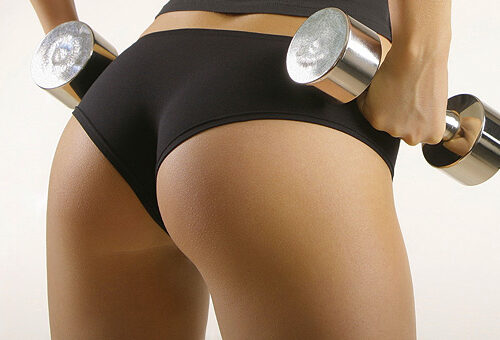
THE WHOLE TRUTH ABOUT: FAT AND WEIGHT LOSS
Contents
Not all fats are the same. What are triglycerides, hydrogenated fats, animal fats, saturated or polyunsaturated fats?
For years, so-called experts in the fitness industry have led us to believe that fats were basically the devil incarnate, and that we should avoid all forms of fat, especially if we wanted to keep our body fat percentages under control.
For fitness enthusiasts, the mere mention of the word «fat» would arouse feelings of fear and distress.
As research and technology advanced and improved, some experts began to conclude that perhaps some fats were not as bad as we had been led to believe in the past. A rapid advance several more years, and finally, after many more clinical studies, and countless hours of research and laboratory experimentation, experts found that some types of fat are actually considered essential to our overall health and well-being. It seems as if the world has been awakened by the countless health and fitness benefits associated with healthy fats, especially those related to fat loss.
How is fat metabolized in the body?
When fat is consumed, a gland in the mouth secretes an enzyme to break down the fat molecules, called lingual lipase. In the stomach, the gastric lipase continues the work of breaking down the fat, emulsifying it and breaking it down. Once the fat enters the small intestine, the bile acids secreted from the gallbladder and liver, continue the process of emulsification.then the pancreas goes into action, as it secretes an enzyme known as pancreatic lipase, which then divides the fat molecules into much smaller diglycerides, monoglycerides and free fatty acids. The fat is then absorbed by the cells in the intestinal wall, as well as binding to proteins, and making its way to the liver to be converted into energy. Here, the larger fatty acids form triglycerides, which enter the bloodstream and are carried around the body, being supplied to various cells and tissues that require energy. Any excess fat that is left over and not used as energy is stored in the fat cells as body fat.
Different fats play different roles
As we have mentioned, in the past, it was a myth surrounding fats that basically stated that all fats are bad for us, and that they not only cause us to be fatter and gain weight, but also increase harmful cholesterol levels and put us at risk for diseases such as heart attacks, cardiovascular disease and hypertension. However, this is not the case since there are actually many forms of fats that are considered very good for us. Of course, there are also bad fats, so let’s look at the different examples.
Bad fats?
Bad fats consist mainly of trans fats, which are fat molecules that have been altered through a process known as hydrogenation. This process makes the fat thicker and more solid, which is what leads to increases in LDL cholesterol, which is the bad cholesterol that lines the walls of the arteries and causes heart disease and heart attacks, as well as several other life-threatening health conditions. Trans fats are mainly found in processed baked goods, such as cakes, cookies, fatty cuts of meat and potato chips.

Good Fats
Healthy fats consist of monounsaturated fats and polyunsaturated fats and are found in natural food sources such as oily fish, nuts, seeds, avocados and healthy oils. Some saturated fats are also considered healthy in the right doses, as long as they come from natural sources such as red meat, or coconut oil.
The benefits of good fats
Therefore, we know some of the main sources of good fats, but we don’t really know why they are good for us. Some of the main benefits of healthy fats include:* Increased HDL (good cholesterol), which lowers bad LDL cholesterol* Reduced LDL cholesterol* Increased metabolism* Fat loss* Increased energy* Improved health and organ function* Healthy bones and joints* Improved fertility and libido* Healthy skin and hair* Reduced risk of certain types of cancer* And more…
Healthy high-fat foods
Over the past five years or so, the number of healthy fats, foods and supplements have increased dramatically, with some of the most popular examples of foods and products including top sellers:
- Omega-3 supplements – Omega-3 supplements are incredibly healthy and beneficial because they promote healthy brain function, increase metabolism, lubricate bones and joints, can help fight dementia and degenerative diseases, promote healthy organ function, and much more besides.
- Chia seeds – organic chia seeds are not only rich in healthy fats, they are also a great source of vegetable-based protein, thus making them ideal for vegetarians and vegans. They are rich in omega 3, 6 and 9 fatty acids, which are rich in minerals and fiber, and are a natural source of tryptophan.
- Coconut Oil – Coconut oil contains medium chain triglycerides and is rich in healthy saturated fats that are easily digested and absorbed, and provide countless health benefits to the human body. Coconut oil has been shown to increase metabolism, is a great source of lauric acid, which provides instant energy, which accelerates fat oxidation and metabolism, is very versatile, and on top of that, its taste is absolutely amazing as well. You can even use it to moisturize and condition your skin and hair!
- Omega Oil Blends – Omega oil blends contain oils derived from very healthy food sources including: flax seeds, hemp seeds, evening primrose, and sunflowers, providing the ultimate blend of alpha linoleic acid, linodeic acid, gamma-linolenic acid, and oleic acid, which are omega 3, 6, and 9 fatty acids, respectively. Once again, we know the many benefits associated with fatty acids, so there is not much more to say, other than that oils are great allies to add to smoothies, or to use as salad dressings.
- Peanut butter – Finally, last on our list, we have peanut butter, which is another great example of a healthy fat. It’s hard to believe that something so delicious can be so good for you, but experts have proven time and again that natural peanut butter, free of salt, sugar and other additives, is very healthy and beneficial to the human body. Peanut butter not only contains healthy fats, but is also rich in protein and virtually free of carbohydrates, making it ideal for high-protein, high-fat, low-carb diets. Available in crunchy or smooth, peanut butter is the ultimate treat that is really good for you.
Even though healthy fats have been shown to help contribute to fat loss, which does not give you free rein to stuff your face full of peanut butter and other healthy fat sources, you have to remember that fats are still rich in calories. 1 gram of fat contains 9 calories, instead of 4 calories found in protein and carbohydrates. Now, obviously, if you consume more than your daily caloric needs, you will gain body fat, no matter where your calories come from.
As fat contains more than twice as many calories per gram as protein and carbohydrates, you should make sure you limit the amount of fat you consume each day, and make sure you eat at, or just below, maintenance, in order to control your weight.

WHAT ARE AMINO ACIDS AND WHAT ARE THEY FOR
También te puede interesar

Lauralie Chapados: The Bikini Fitness Queen and Her Inspiring Transformation
noviembre 10, 2024
TONE YOUR GLUTES AND BURN MORE CALORIES
mayo 28, 2018
